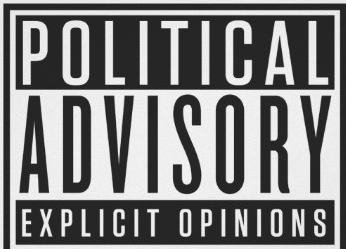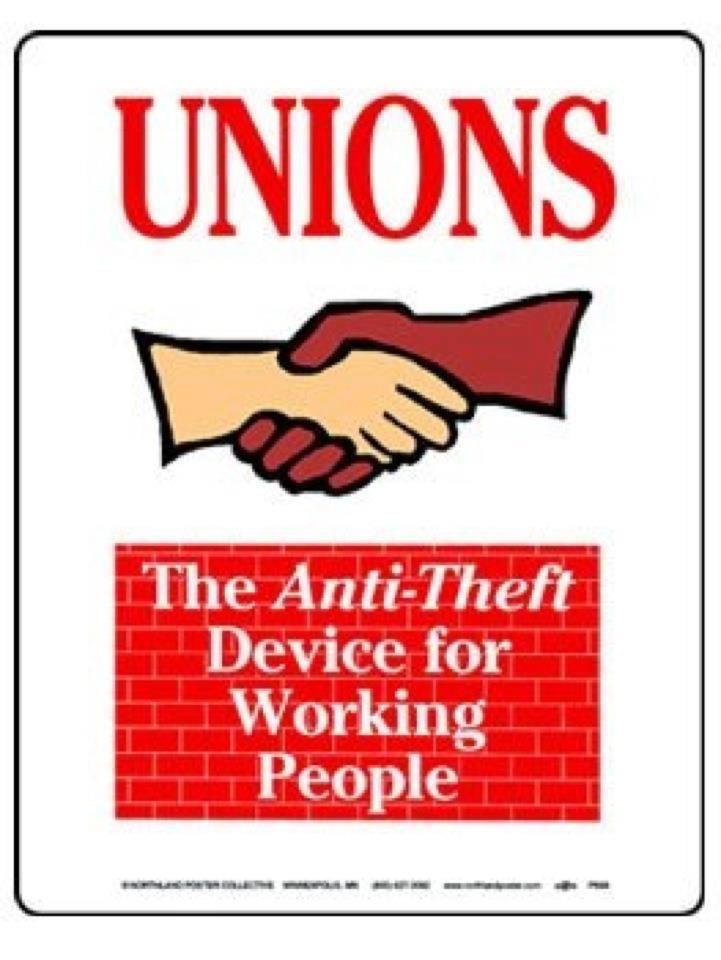Wanted: New Ways of Working Together.
Winning politically is not only about criticizing the neoliberal policies of the Right. The Left is in need of some serious self- analysis and this blog briefly discusses some of the challenges facing trade unions.
Declining incomes and living standards are inflicting pain on working people everywhere. This decline is accompanied by an unprecedented concentration of wealth in fewer and fewer hands . Unemployment is high and social security is weakened by the policies of austerity which seek to balance the accounts with no regard for matters of wealth distribution. Low rates of unionization mean that collective bargaining protects some but cannot prevent an overall decline at this point in our history.
To reverse these trends working people must have greater power in the political and economic decisions of their nations. Workers have traditionally gained that power by organizing in the workplace. Following the Great Depression of the 1930’s unions grew rapidly and through collective bargaining built incomes and more equal societies.
So, with few exceptions, why are unions not growing again? The nature of society has radically changed and with it the nature of the workplace. We try to organise our unions based on an industrial model which is in decline and exists now in only minority areas of the labour market.
30 years of consumerism and radical promotion of individual rights over collective rights has destroyed the traditional ideological base which underpins collective action. Fee for service is preferred over membership.
People, by and large, no longer join organisations. They might donate to a cause they believe in, take action in support of a protest or campaign, be motivated to fight injustice and rebel against authority. However the membership of political parties and other community organisations is generally declining. It is a mistake to think that unions are immune from this, even if we remain, in NZ, the largest representative democratic group of citizens.
We have brand damage and poor brand recognition. All those disputes fought in the past which did not have widespread public support damaged unions. There is no education on the role of unions in society and so it is very common to talk to young people who do not know what a union is.
We struggle to close the representation gap. We would grow strongly if we could sign up those who would join a union but have never had the opportunity, despite the trend against joining organisations described above. Unions often act like clubs of privilege and impose complex barriers to accessing membership.
Finally there is employer aggression and worker fear. There is no realisable freedom of association for most workers.
Unions must change to attract members. Often our ideological persuasions demand that workers must change to meet the requirements of our organisations. This will never work. As society continues to change, will unions consign themselves to historical irrelevance? The answer must be a defiant no and a determination to not only fight but also to think.
First and foremost unions must find ways of representing non traditional workers. Dependent and independent contractors, agency workers, temporary workers, farm workers and small farmers are categories of workers which would benefit from collective representation. With some notable exceptions (e.g. Unite, Together) current union structures are not able to represent such workers because they are structured to represent and protect the interests of workers in traditional employment and mostly those who have decent jobs. However unions often have the resources to invest in new structures and forms of organization. The union movement must get serious about representing workers (rather than just members) or they will continue to decline. And yet it is members who financially support their union and expect full attention to their needs. More attention should be given to different union fee systems within union structures to recruit and retain workers in different types of employment.
One long term successful model is the IUF affiliated Self Employed Womens Association (SEWA) of India
SEWA is a trade union which was registered in 1972. It is an organisation of poor, self-employed women workers. These are women who earn a living through their own labour or small businesses. They do not obtain regular salaried employment with welfare benefits like workers in the organised sector. They are the unprotected labour force of India. Of the female labour force in India, more than 94% are in the unorganised sector. Women workers remain uncounted, undercounted and invisible.
SEWA’s goal is to organise women workers for full employment. Full employment means employment whereby workers obtain work security, income security, food security and social security (at least health care, child care and shelter). Women should be autonomous and self-reliant, individually and collectively, both economically and in terms of their decision-making ability.
In 2008 the fee paying membership of SEWA was almost one million.
SEWA is both an organisation and a movement. The SEWA movement is enhanced by its being a sangam or confluence of three movements: the labour movement, the cooperative movement and the women’s movement. Visit their website at www.sewa.org to gain a greater appreciation of the aspirations and achievements of this remarkable organisation.
Finally, back in the neo liberal experiment which is Aotearoa New Zealand, we must lobby for comprehensive citizenship education in our schools. By understanding the rights and responsibilities of being a citizen in a community and in a nation, people will be motivated again to join with others to act collectively for better working lives.
James Ritchie
International Officer, International Union Food Workers (IUF), Geneva, Switzerland







Ain’t all that (above) the fucking truth! NZ’s left seems nebulous – almost as though it were some new kind of phenomenon rather than the recognition of gradual dismantling of an alternative to that which OBVIOUSLY hasn’t, and will not work.
Check out Mike Treen’s last (for example). WHAT exactly do we see from THAT post?
Why 2 commenters (moisef included).
Christ ALmighty!
The LEFT is actually in a comfort zone – despite an incredible avalanche of activity over a quater century that’s ended up with opposition to the current being viewed as radical.
JHC – even the Labour Party is as RIGHT wing as a Neo-lib/3rd Way/4th Reich ‘alternative’. What’s worse is that as they challenge the political discourse (when they do in namby pamby fashion), they’re seen as RADICAL ffs!
Timely column James. Really the Social democratic and marxist tendencies need to team up again in Aoteatora. Which is what Te Mana promotes really “unite all who can be united” The old Socialist Unity Party led to a number of career opportunists joining up in the compulsory union membership days prior to the formation of the NZCTU which supported ANZAC frigates etc. and crucially vetoed a general strike over the ECB which Bill Birch has subsequently admitted the Nats would have folded on with some serious kick back.
The soviet professors told people like Wolfie that NZ was at the back of the Que for a socialist transformation due the the recent post colonial past and preponderance of rural and small business sectors. And the social composition of NZ has not improved after 3 decades of rogernomics.
But Helen is doing a bloody good job as are most of the 350,000 unionists. FIRST in particular with migrant workers and UNITE.
Due to the fact that several people in my family are dependent contractors in the building sector I’ve been thinking about this for awhile and I believe I have a solution. It’s one based upon labour hire firms which happen to be the biggest ticket clippers around.
Now, labour hire firms act as administration centres for labour and they work because when someone wants something done it’s easier to call a single firm rather than calling up all of the individuals themselves. When they get a job they then contract in people that they have on their books as available workers. The beauty for this for the labour hire firms is that they don’t have to keep paying people when there’s no work on and, especially in a recession, they don’t have to pay much. The result is that the only winners from labour hire firms happens to be the owners. The people doing the work are never paid enough to put aside money to tide them over in the down times.
My suggestion is that the union takes the place of the labour hire firm. When people want work done they can call the union (although it’d probably be like a cooperative along the lines of Fonterra) and then the cooperative sends out the people to do the work and receives the money from the client. The difference from the labour hire firms is that the administrators are recognised as employees of the contractors and so the contractors would have a direct say in how much the administrators are paid, how much they themselves are paid and how much of a weekly income each contractor would have even if they don’t work.
Remove the need for employers.
One of the more sensible things Malcolm X said was, “if you’re not careful, the newspapers will have us hating the oppressed and loving the people doing the oppresssing.” That’s probably the biggest issue facing modern union movements. And the 1981 Tour would have been NZ’s French May, had the unions not been split over it.
The recent emergence of “alt-labor” in the States could provide some hope yet.
Comments are closed.